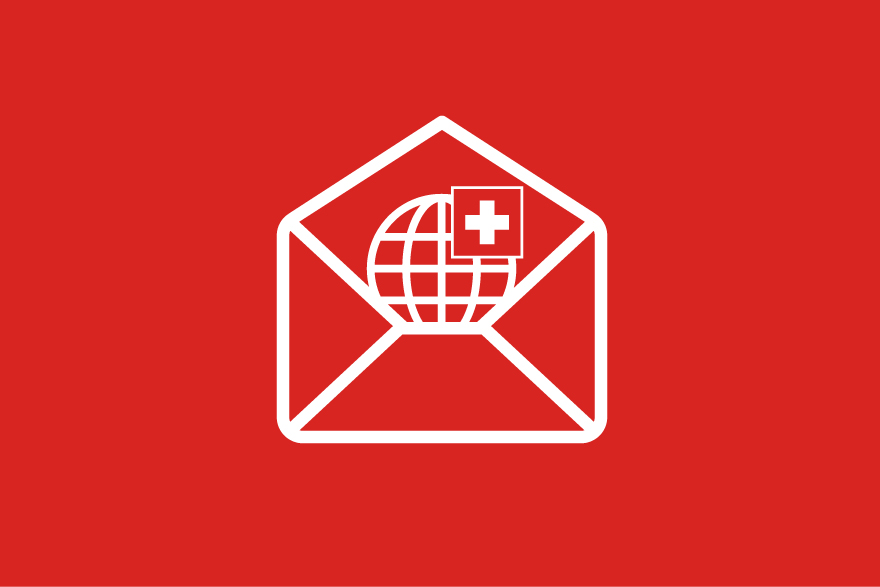
Ten years on: achievements and challenges of the Swiss Abroad Act

A decade ago the Swiss Abroad Act came into force, defining for the first time the rights and obligations of Swiss expats. What has this law actually achieved and where does it still fall short?
“Joy within the Swiss Abroad community,” reported Swissinfo in September 2014, when parliament adopted the Swiss Abroad Act (SAA). For the roughly 760,000 Swiss living abroad at the time, this law was a milestone as well as a political victory for the Organisation of the Swiss Abroad (OSA), which had spent years pushing for a coherent legal basis.
The law originated from a parliamentary initiative by Filippo LombardiExternal link, now president of the OSA. “Having lived abroad myself, I quickly realised how little understanding parliament had for the concerns of the Swiss diaspora,” Lombardi remembers.
Many rules that affected the Swiss Abroad used to be scattered across various ordinances and guidelines. The SAA finally provided Swiss expats with a clearly defined and unified legal framework. According to Lombardi, it had the added benefit that more than a dozen laws, rules and regulations could be scrapped.

What the Swiss Abroad Act covers
Since 2015, the SAA has defined the rights and obligations of all Swiss who either live or travel abroad. The Swiss foreign ministry emphasises that the law clearly established key principles such as personal responsibility, a central point of contact, subsidiarity in state support, limits to consular protection as well as guidelines on the costs for consular services.
The law places a strong emphasis on individual responsibility. Those moving abroad should be well prepared, weigh risks and solve problems largely on their own, the law stipulates.

More
Consular protection: more and more elderly Swiss are dying abroad
One key provision is the obligation to register with a Swiss embassy when moving to another country or when a child is born abroad. Anyone who is listed in a Register of the Swiss Abroad can access consular services, exercise political rights and be contacted quickly by the authorities in an emergency. It also helps Switzerland keep track of its diaspora, unlike Germany, for example, which has no such requirement.
The SAA also regulates the extent of consular support, specifying exactly when the Swiss government will step in and where its assistance ends. Finally, the law defines the cost rules stipulating when consular services are subject to fees and under which circumstances those fees might be waived.
When the law was adopted, Lombardi said: “With this legislation, the federal government finally recognises the Swiss Abroad, sees them as a resource, values them and keeps them informed.”

More
Everything you need to know about the Swiss Abroad
What has improved in the past decade?
Ten years on, the foreign ministry gives the SAA a positive verdict. “The SAA and the creation of the Consular Directorate in 2011 have streamlined the structure,” the foreign ministry told Swissinfo. This, it says, has improved support for the Swiss Abroad and has made consular services more professional.
The Swiss foreign ministry highlights that, for the first time, the law provides a comprehensive overview of the rights and obligations of Swiss expats. It sets out what the federal government can do and where its limits lie. This legal clarity facilitates the ministry’s daily work and helps frame the expectations of the Swiss Abroad.

The Swiss model also serves as an example for other countries. “Switzerland’s partner countries are showing growing interest in the SAA as it clearly defines the requirements and conditions for consular services abroad,” writes the foreign ministry.
Lombardi also sees clear progress. “Since its adoption, the rights and obligations of the Swiss Abroad have finally been set down in black and white. Consular services are better regulated, personal responsibility is enshrined, and key principles are more transparent.” Furthermore, the law has also helped increase the understanding among the Swiss at home for their compatriots abroad.
Remaining challenges
Although the SAA is meant to offer guidance, expectations among Swiss expats often remain high. Many expect the government to offer almost limitless support in a crisis.
However, the law defines clear limits. “The foreign ministry provides assistance in emergency situations,” the ministry writes, but only within the framework of the subsidiarity principle, not as a substitute for private precautions.
Swiss embassies and consulates must repeatedly communicate the limits of their mandate, which they do through information and awareness-raising efforts.

More
‘Swiss expats’ expectations are too high’
“The law has brought many improvements, but it by no means solves all problems,” says Lombardi. A strong Organisation of the Swiss Abroad, effective communication as well as politicians who understand the needs of Swiss expats are still essential. “Unfortunately, understanding for the Swiss Abroad among their compatriots at home has declined again in recent years. We must nurture this relationship,” he adds.
Where action is still needed
The number of Swiss expats is constantly on the rise and surpassed 820,000 at the end of 2024. At the same time, crises and conflicts around the world are increasing. “For this reason, the foreign ministry prioritises measures in prevention, protection and emergency aid,” the ministry’s press department adds.
Lombardi sees the future mainly in political participation and stresses that e-voting is key for the Swiss Abroad. “Postal delivery is becoming increasingly difficult in many countries. Anyone who wants to participate in political decision-making must have a secure digital option,” he says.
Edited by Balz Rigendinger. Adapted from German by Billi Bierling/ts

In compliance with the JTI standards
More: SWI swissinfo.ch certified by the Journalism Trust Initiative






























You can find an overview of ongoing debates with our journalists here . Please join us!
If you want to start a conversation about a topic raised in this article or want to report factual errors, email us at english@swissinfo.ch.